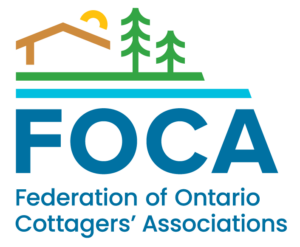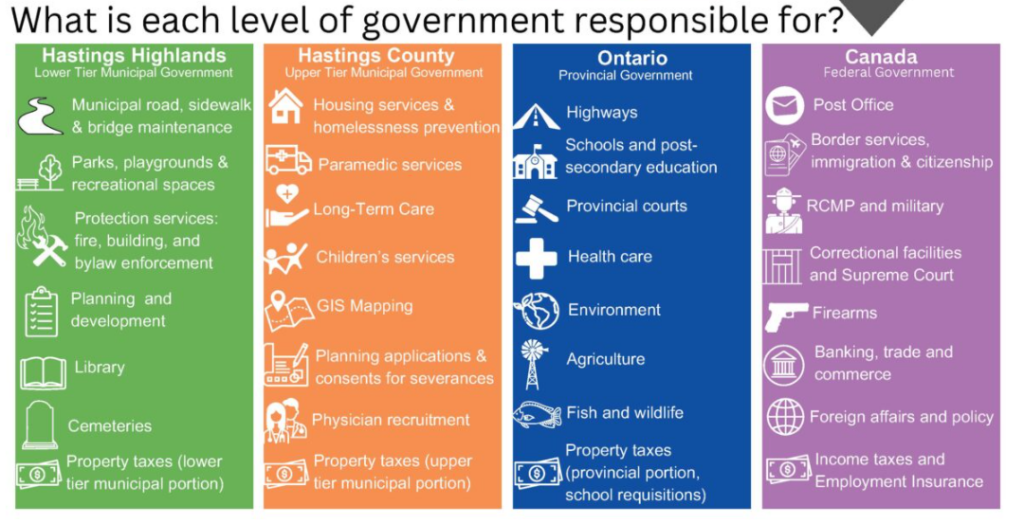
FOCA represents waterfront property owners’ interests, and acts as a conduit on many important public policy issues that affect waterfront environments.

On January 6, 2025, Justin Trudeau announced he will resign his post as Prime Minister once a new leader of the federal Liberal party is chosen. He then prorogued Parliament which will not sit again until March 24. This brings to an end all Government bills that were in progress and makes it likely that the capital gains tax inclusion rate change announced by the Federal Government last summer will never become law. However, the Canada Revenue Agency has announced the 2024 tax forms will reflect the higher inclusion rate. Read an overview of the complexity from the legal minds at Fasken: https://www.fasken.com/en/knowledge/2025/01/assessing-the-prorogation-of-the-canadian-parliament-to-start-2025
Part of FOCA’s role since our founding in 1963 has always been to speak up on behalf of Ontario’s waterfront communities, and in turn to encourage citizens to participate in the democratic process, and to speak up and have their own voices heard.
As a large group of voters, the opinions, needs and aspirations of Ontario’s 250,000 waterfront property owners are diverse and significant. FOCA is non-partisan; there are rarely straightforward answers that satisfy all interests at all times. We work collaboratively with government and other groups to advance waterfront issues where there is a common perspective or interest to defend.
FOCA participates in many provincial, regional and municipal working groups, alongside our work with partner organizations, scientific and professional peers, government and policy makers, and our members to represent waterfront property owners’ interests in emerging and ongoing issues. Cottaging is an iconic and well-loved part of our cultural fabric and identity as Ontarians and Canadians. We are working to preserve a way of life, and a quality of living for our kids and grandkids.
Learn more about FOCA’s work, including advocacy for responsive government.
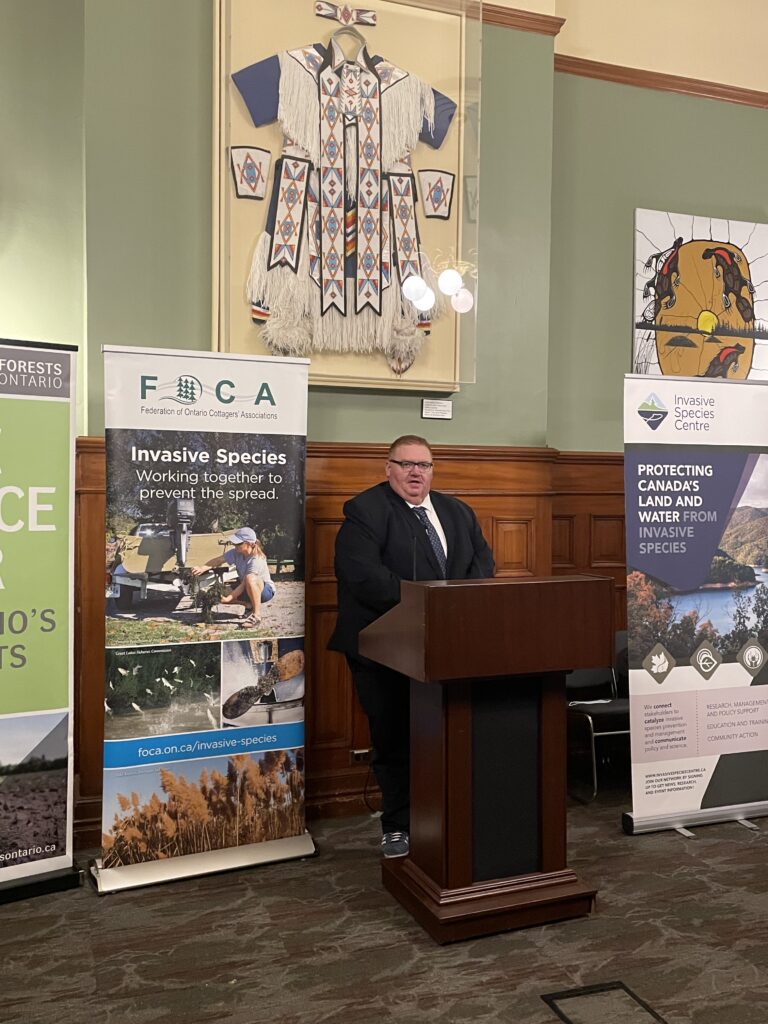
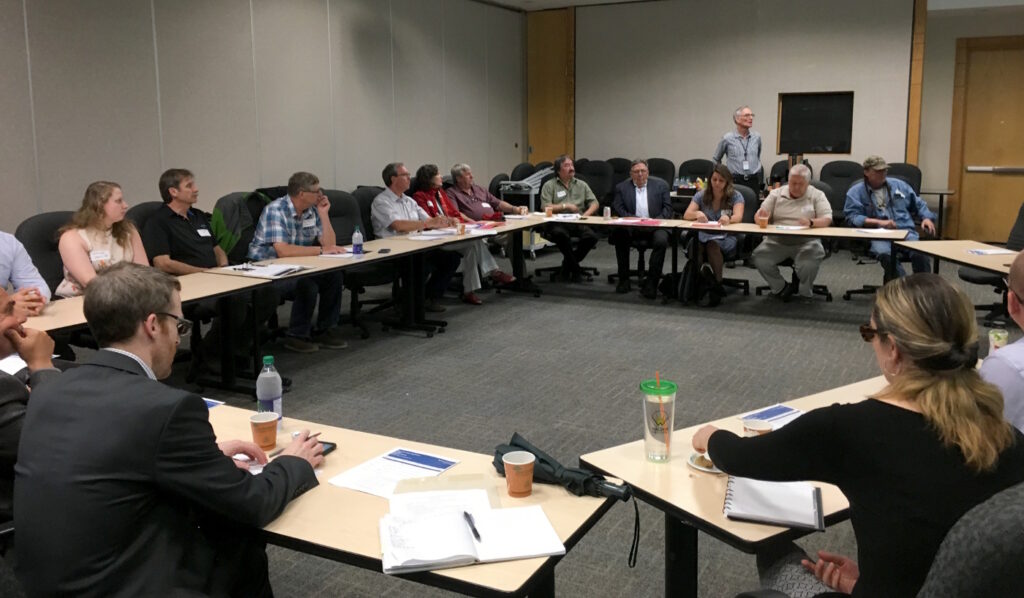
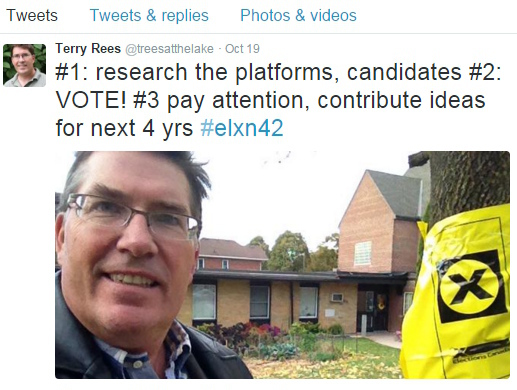


There is strength in numbers. Let’s be heard by our elected officials on the issues that matter most to waterfront Ontario!
Adult Canadians have the right (some would say the obligation) to register their vote at each Federal, Provincial, and Municipal election. Equally important is to participate on an ongoing basis in public discourse, and to weigh in on matters that are important to our families and our communities.
It is important to get involved in public policy and feel connected to the decisions that affect our lives. We’ve all heard that “democracy is messy” – but it’s what we’ve got, and it’s up to all of us to make it the best it can be.

FOCA encourages you to participate in the democratic process at election time and throughout your representatives’ terms of office. Read onward, or jump to one of the following sub-sections and additional FOCA webpages:
Jump to these sections, below:
Who Does What? (an overview of federal, provincial and municipal government in Canada)
Visit our additional webpages:
Municipal Government Partners, Elections & Getting Involved in Local Budget Setting
Provincial Government & Elections
To learn more about democracy, elections and political engagement, FOCA encourages you to visit the website of the Samara Centre for Democracy.

Tips for Raising your Political Voice:
Politicians want to be associated with issues that will get them (re-)elected and will show that they have done a good job. They won’t know how constituents really feel unless we communicate with them. Each comment received directly from a voter carries weight, as it suggests broader trends. It is part of an elected official’s responsibility to study all available information on a topic. But don’t waste their time; know your issue and be brief. Provide facts and suggest solutions.
What you can do, to effectively deliver your message to elected officials:
- Write a letter to your municipal councillor, MPP, MP or political candidates.
- Call their office, and ask them specifically what they propose to do about your issue or situation.
- Schedule a visit with your elected official or candidates, attend their events or invite them to attend yours. Introduce yourself if there is a meet-and-greet, and follow the tips below.
- Encourage your neighbours to do the same!
- Support FOCA’s advocacy efforts through Association membership, being a Friend of FOCA (annual supporter) and/or one-time donations, and get on the Elert list to be kept up-to-date about emerging issues and new calls to action!
Meeting with a politician? Here are some quick tips:
- Identify yourself as a constituent of their riding.
- Give a short explanation of how the issue affects you personally, and whether you support or oppose it.
- Use facts and figures to support your argument.
- Be concise and stick to the issue if you want to express your opinion or ask for their stance on an issue.
- Hand them a 1-page brief on the issue to take away and reference in the future.
- Thank them for their time, and remind them you will be discussing the matter with your neighbours, and voting to support the issue at hand.
- Mention specifically if you want a written response, then follow up with their office staff in two weeks if there has been no reply.
Who does what? An overview:
~
The Federal Government of Canada deals with national issues. 338 Members of Parliament (MPs) are elected from across the country. The political party with the most MPPs forms the provincial government; their leader becomes the Prime Minister who is the head of the country’s government. The Federal Government is responsible for areas of interest to our members such as transport (air, rail or marine – including navigation/boating), fisheries and Great Lakes / international issues, among others. Parks Canada (which oversees the Trent Severn Waterway and Rideau Waterway) is a federal agency. Learn more about the Federal Government here and find your federal MP here.
~
The Provincial Government is responsible for issues that affect Ontario as a whole. For waterfront property owners, this includes the environment, natural resources management, health care, rural affairs, property taxation, highways, and energy policy, among others. Ontario’s parliament consists of 124 elected representatives called Members of Provincial Parliament (MPPs) elected from across the province. The political party with the most MPPs forms the provincial government; their leader becomes the Premier who is the head of Ontario’s government. Learn more about MPPs and the Ontario Legislature here.
~
Municipal Governments in Ontario are responsible for providing many of the services that you rely on daily including maintenance of many (but not all) local roads, garbage & sewage & water services, fire and public health services, planning and bylaws and permitting. This level of government may be described as “municipal” (e.g., Town of Espanola; Township of Tay); “single-tier” – that is, certain cities that are geographically within a county, but are governed distinctly (e.g., City of Kawartha Lakes; City of Greater Sudbury); “upper-tier” – that is, a county or regional government (a federation of the local municipalities) that provides some municipal services (e.g., Bruce County); or “lower-tier” – that is, a municipality underneath an upper-tier government (e.g., Municipality of Northern Bruce Peninsula).
The powers of municipal governments are determined by the provincial government. For more, including links to municipal websites, visit the Association of Municipalities of Ontario and review a slide presentation About Local Government (PDF, 53 slides) from 2016 by the Association of Municipal Managers, Clerks and Treasurers of Ontario.
~
Not every area of Ontario falls within a municipal boundary. An “Unorganized Area” is any geographic region with no municipal organization (and that is not a First Nations reserve or provincial park). In Ontario, unorganized areas are found only in Northwestern and Northern Ontario, including part of the Parry Sound District. Learn more here. Certain unorganized areas may receive some services delivered by volunteer Local Service Boards.
Public Participation: the Environmental Bill of Rights
You have a right to participate in certain government decisions affecting the environment under the Environmental Bill of Rights (EBR, 1993). The EBR was first introduced nearly 30 years ago, and is a tool that affords citizens the right to participate and be consulted in decision-making on some environmental projects and government decisions. Since the EBR was enacted, a number of important environmental principles have emerged (including concepts such as ‘polluter pays’ and the ‘precautionary principle’).
Find out how to use the Environmental Registry of Ontario (ERO), request a review or investigation and seek leave (permission) to appeal a decision: https://www.ontario.ca/page/environmental-bill-rights and then access the online Environmental Registry of Ontario (ERO) where the public can comment on actions the province is taking that could affect the environment.
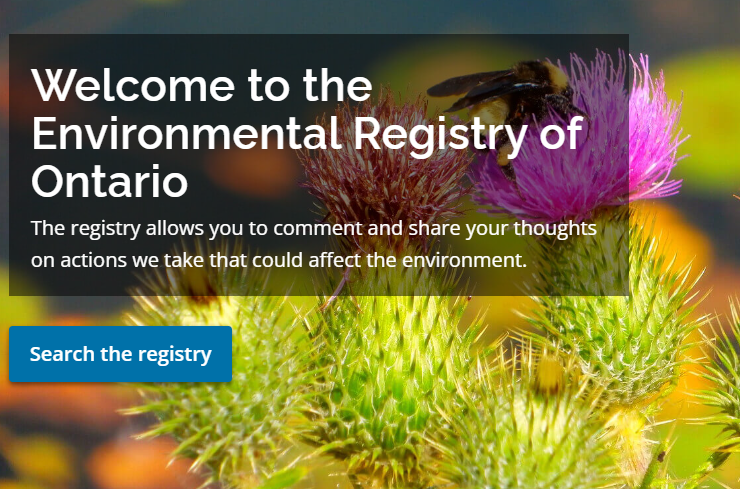
The Ontario Auditor General releases regular money-for-value audits and annual reports on the province’s environmental performance. For more about the Auditor General’s role and the state of public consultation through the ERO, read this article from December 2021 by the Canadian Environmental Law Association (CELA): The Need for Government Outreach Programs – The ABCs of the EBR

Please note: the following is archival material, and some links to third-party resources may no longer be active.
October 2022 – The Law Commission of Ontario (LCO) recently released a consultation paper that identifies how the province’s Environmental Bill of Rights (EBR) could be amended to enhance environmental accountability.
It is FOCA’s view that an updated and strengthened EBR can provide better environmental protection, public participation, and provincial government accountability. The LCO is currently seeking public feedback on this important topic. Learn more, and find out how to submit comment to LCO by November 25, 2022: https://www.lco-cdo.org/en/our-current-projects/environmental-accountability-rights-responsibilities-and-access-to-justice/
In April 2020, as part of Ontario’s emergency measures put in place in response to the global pandemic, the Province suspended key rights of the public to participate through the provisions of the Environmental Bill of Rights. FOCA believes this regulation was overreaching in its scope and scale, and hindered the public’s ability to participate in decision-making to safeguard our environment. You can read the letter submitted to the Province authored by Canadian Environmental Law Association and undersigned by FOCA and nearly 50 other groups, here. In June 2020, the Province revoked the regulation, a decision welcomed by FOCA and others. FOCA believes that to respect the public’s right to know and participate, the Province should retroactively disclose all proposals for laws, policies, regulations and instruments which would have been posted for comment, if not for the suspension regulation, and restart the comment period on those items which are not urgent COVID-19 actions.
Read the explanatory letter received by FOCA from the Auditor General, by clicking here. (PDF, 4 pages)
November 23, 2018 – In response to the Province’s announced plans to eliminate the office of the Environmental Commissioner of Ontario (ECO), FOCA has issued an important “call-to-action” for you:
- Read FOCA’s letter to the Premier (November 26, 2018; PDF, 2 pages) and an email response to FOCA’s letter, from the Office of Mike Schreiner (Nov. 26, 2018; 2 pages)
- Add your voice by sending your own message to the Premier and your MPP; remember to copy president@foca.on.ca!
November 15, 2018 – FOCA joined partner environmental organizations across the country, in opposing the elimination of the ECO. Read the joint letter from environmental organizations to the Premier (Nov. 15, 2018; PDF, 4 pages)
_____
There is good news about the environmental rights of Ontario residents, and an opportunity to make them better:
1. A long awaited opportunity to update the EBR, 1993
Significant environmental decisions are too important to leave entirely to government. The Environmental Bill of Rights (EBR) allows Ontarians to participate in such decisions, and to hold the government accountable for the results.
For 23 years, the EBR has helped citizens achieve better environmental outcomes (see some success stories here), but strengthening the EBR is long overdue. The ECO has called for EBR reform since 2005. In 2010, environmental groups used EBR tools to persuade the province to review the legislation, but nothing really happened until now.
Until Nov. 8, 2016, the Ministry of Environment and Climate Change (MOECC) is finally seeking comments on Review of the EBR, (EBR Registry Number:012-8002). Our comments on some key EBR reforms, based on our office’s 23 years as guardian of the EBR, are posted here. If you care about environmental rights, don’t miss this chance to tell the government what you think.
2. Better government compliance with the EBR
I am pleased with the great success our office has had in encouraging government ministries to improve their compliance with the EBR, since my appointment last fall. In June, we reported how each of 14 government ministries respect EBR environmental rights, and we are glad to see that they are continuing to improve. See eco.on.ca/reports/ebr-performance-checkup-2016/.
3. Easy to use Registry Alert Tool and website
Ontarians have the right to know when the Ontario government is planning an environmentally significant decision — and to have a say in that decision. But exercising that right effectively has required a tedious manual daily search of the frustrating Environmental Registry.
Instead, the ECO has created a much-needed shortcut to help you stay up-to-date on the issues you care about. Once you register your keywords, you will get relevant Environmental Registry Alerts directly to your email the same day they are posted. See how to start your personal email alerts at http://alerts.ecoissues.ca/.
While you are there, check out our new website, packed with help in exercising environmental rights, and with our high quality, non-partisan research on energy, climate, and environment.
